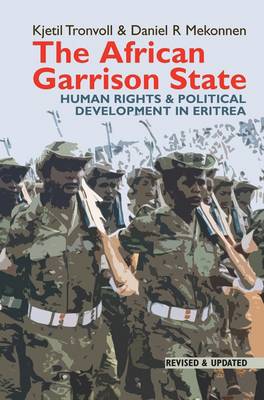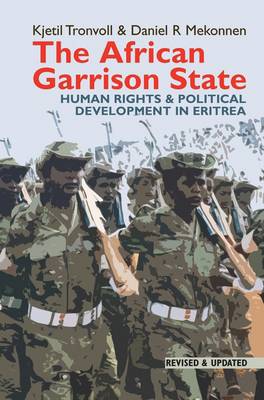
- Retrait gratuit dans votre magasin Club
- 7.000.000 titres dans notre catalogue
- Payer en toute sécurité
- Toujours un magasin près de chez vous
- Retrait gratuit dans votre magasin Club
- 7.000.0000 titres dans notre catalogue
- Payer en toute sécurité
- Toujours un magasin près de chez vous
The African Garrison State
Human Rights & Political Development in Eritrea Revised and Updated
Kjetil Tronvoll, Daniel R Mekonnen
59,95 €
+ 119 points
Format
Description
WINNER: 2015 CHOICE Outstanding Academic Title Award Examines Eritrea's deprivation of human rights since independence and its transformation into a militarised "garrison state", updated to include the recent UN Commission of Inquiry and the new geopolitical dynamics. When Eritrea gained independence in 1991, hopes were high for its transformation. In two decades however, it became one of the most repressive in the world, effectively a militarised "garrison state". This comprehensive and detailed analysis examines how the prospects for democracy in the new state turned to ashes, reviewing its development, and in particular the loss of human rights and the state's political organisation. Beginning with judicial development in independent Eritrea, subsequent chapters scrutinise the rule of law and the court system; the hobbled process of democratisation, and the curtailment of civil society; the Eritrean prison system and everyday life of detention and disappearances; and the situation of minorities in the country. While the situation is bleak, it is not without hope: the epilogue describes the recent UN Commission of Inquiry process, the renewed international dialogue with Asmara and the new geopolitical dynamics. Kjetil Tronvoll is Professor of Peace and Conflict Studies at Bjørknes University College, Director of Oslo Analytica policy research and advisory company, and a former Professor of Human Rights at the University of Oslo.; Daniel Mekonnen is the Executive Director of the Eritrean Law Society, and a Guest Writer at the Writers in Exile Program of the Swiss-German PEN Centre in Luzern, Switzerland. Formerly, he was Judge of the Central Provincial Court in Asmara, Eritrea.
Spécifications
Parties prenantes
- Auteur(s) :
- Editeur:
Contenu
- Nombre de pages :
- 232
- Langue:
- Anglais
- Collection :
- Tome:
- n° 21
Caractéristiques
- EAN:
- 9781847011671
- Date de parution :
- 16-06-17
- Format:
- Livre broché
- Format numérique:
- Trade paperback (VS)
- Dimensions :
- 156 mm x 234 mm
- Poids :
- 331 g

Les avis
Nous publions uniquement les avis qui respectent les conditions requises. Consultez nos conditions pour les avis.






